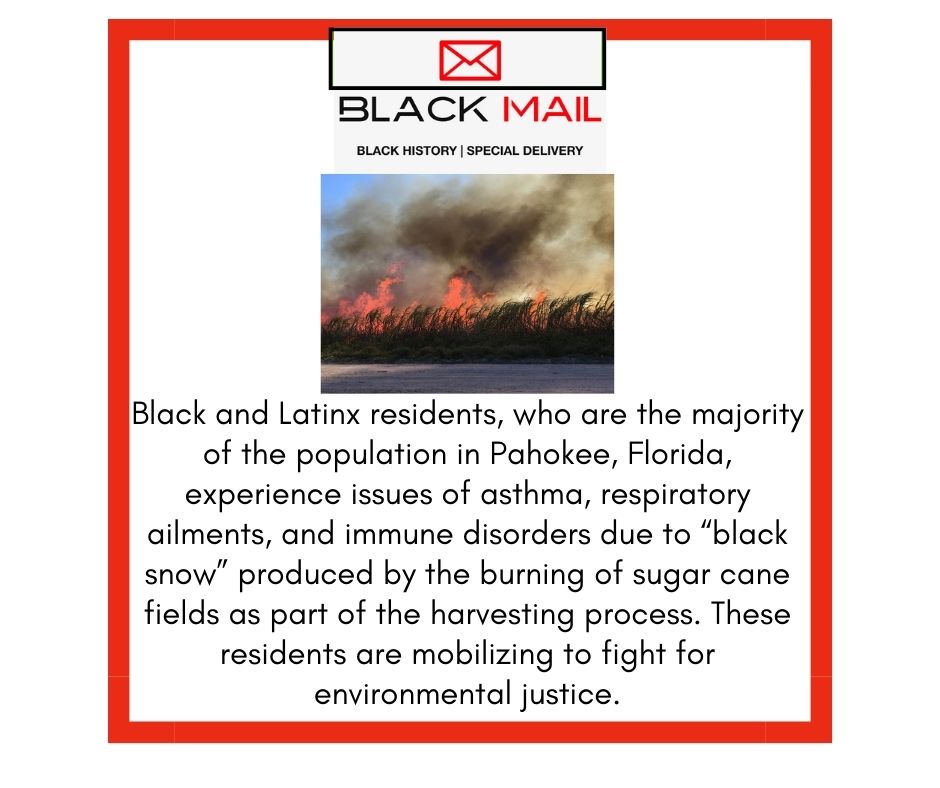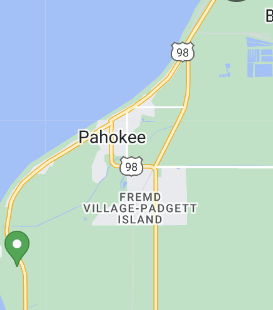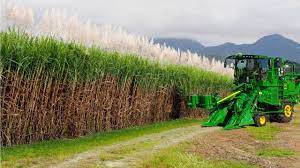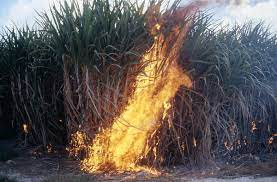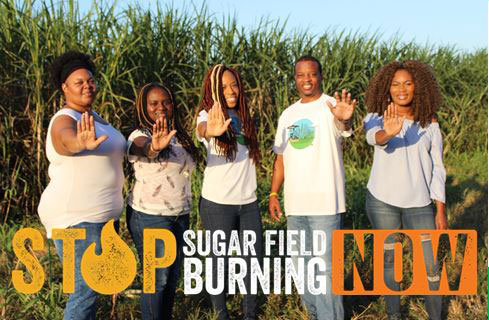Welcome To Black Mail, where we bring you Black History—Special Delivery!
In Palm Beach County, Florida, lies the small city of Pahokee, whose name is derived from the Seminole word meaning “grassy waters.” With a population of approximately 6,269 people, the community experiences the phenomenon of “black snow” each October. The “snow” is not the wintery scene many might envision. Instead, it is an environmental and agricultural hazard derived from the practice of burning sugar cane fields before harvesting.
Farmers burn sugarcane crops before harvest to remove the leaves and tops of the sugarcane plant leaving only the sugar-bearing stalk to be harvested.
Sierra club
This annual “snow event “ layers the area with soot and pollution, negatively impacting the health of its primarily Black and Latinx residents. Many environmental groups cite the process of field burning as being unnecessary since there are other “green harvesting” options available.?Major sugarcane producers around the world practice green harvesting. The discriminatory burn regulation practices ensure that more affluent communities avoid pollution due to regulations and burning permits being issued based on wind direction.
The Pahokee population is 59% Black and 30% Hispanic. Residents face a barrage of health issues caused by this environmental issue, including asthma, respiratory ailments, and immune system disorders. The health concerns go beyond the diminishment of air quality, also diminishing access to clean water, endangerment of wildlife, and decreasing property values. According to the Sierra Club, “
Initially settled by Seminole Indians, Pahokee was later overtaken by white settlers in the late 19th century, who were drawn by its fertile soil and nearby water source, Lake Okeechobee. Pahokee’s influx of African American residents shaped the city’s footprint and economy.
Black people came to Pahokee through a series of migration and labor movements. Many went to the area for agricultural employment opportunities in the sugar cane fields and other farming-related jobs. Many also were fleeing racial oppression. The early 20th century brought with it an increased need for labor to meet the growing demands of production for the sugar cane industry, resulting in the relocation of Black people from other parts of the South who found work as agricultural laborers on the sugar plantations and processing plants.
Pahokee would soon become home to a growing population of Black residents. Now, Pahokee finds itself at an intersection, wrestling with the environmental and health impacts of the sugar cane industry. “Green harvesting” has emerged as a solution to the hazardous processes of sugar cane field burning as it may greatly reduce pollution. Sugar cane farmers are being challenged to convert to green harvesting approaches.
Efforts to address the root causes of these environmental injustices continue. Residents are raising their voices and demanding change. In 2019, a class-action lawsuit was filed against several sugar companies in the Pahokee area. The advocacy of these residents is focused on finding solutions that improve health and ensure the health and prosperity of future generations.
The “Stop the Burn Campaign” is a grassroots environmental justice campaign that is mobilizing to address this environmental injustice, and it advocates for the replacement of pre-harvest sugar field burning with modern, sustainable, burn-free green harvesting.
Another installment of melanated mail has been delivered. Ponder, reflect, and pass it on.

